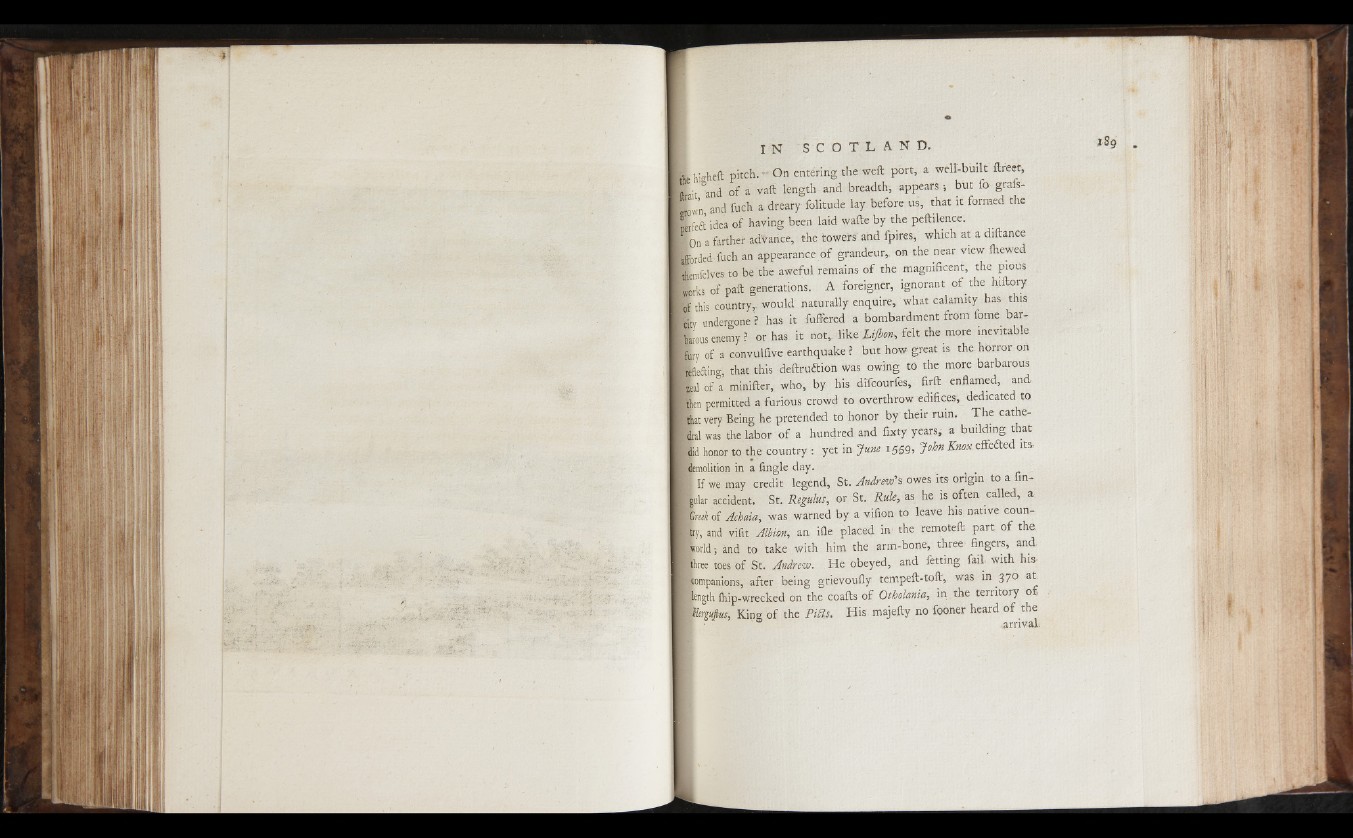
M i l
Sill IHL I
iiiimn i
H i
I !
iHiHi ! hi IfitikW
BU II
11
p i
S I
wm.
W m m .
W m m §
m i
¿Tip hiehefl: pitch. "O n entering the weft port, a well-built ftreet,
K it and of a vaft length and breadth, appears -, but fo grafs-
K wn and fuch a dreary folitude lay before us, that it formed the
Krfeft idea of having been laid wafte by the peftilence.
Kon a farther advance, the towers and fpires, which at a diftance
afforded fuch an appearance of grandeur,, on the near view ihewed
Kemfelves to be the aweful remains of the magnificent, the pious
Jorks of paft generations. A foreigner, ignorant of the hiftory
of this country,, would naturally enquire, what calamity has this
CL undergone ? has it differed a bombardment from fome barbarous
enemy ? or has it not,, like Lijbon, felt the more inevitable
fiirv of a convulfive earthquake ? but how great is the horror on
Jfle&ing, that this deftruftion was owing to the more barbarous Heal of a minifter, who, by his difcourfes, firft enflamed, and
Rea permitted a furious crowd to overthrow edifices, dedicated to ghat very Being he pretended to honor by their ruin. The cathe-
dral was the labor of a hundred and fixty years, a building that
Bid honor to the country: yet in June 1559, John Knox effected its,
Bemolkion in a fingle day.
I If we may credit legend, St. Andrew's owes its- origin to a fin-
Rilar accident. St. Regulus, or St.. Rule, as he is often called, a
mtik of Achaia, was warned by a vifion to leave his native coun-
Iry, and vifit Albion, an. ifie placed in- the remoteft part of the
lorld; and to take with him the arm-bone, three fingers, and
Ihree toes of St. Andrew. He obeyed, and fetting fail, with his-
Companions, after being grievouily tempeft-tofr, was in 370 at
length ihip-wrecked on the coafts of Otholania, in the territory o£
Wiergujlus, King of the Piils. His majefty no fooner heard of the
r ■ .arrival.